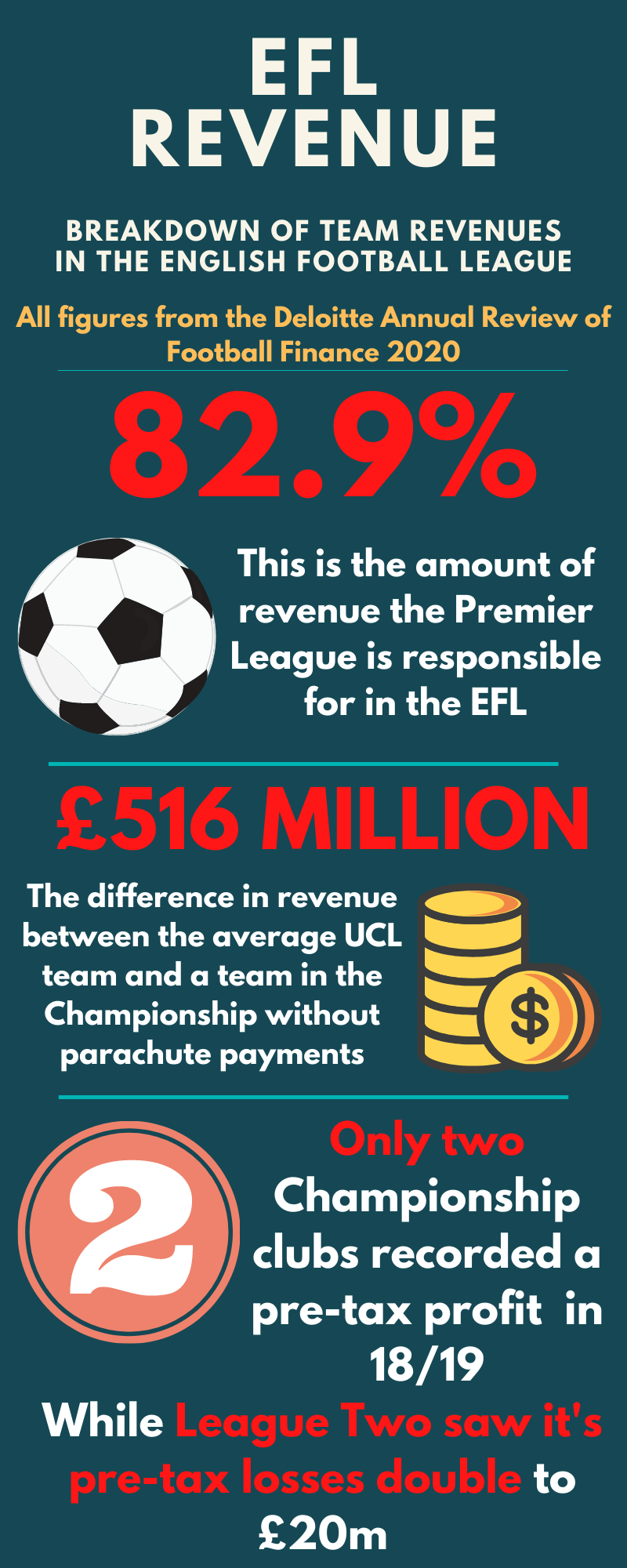Words by Tony Robertson (@TonyRob84).
Labelled as “the most revolutionary and transformative changes that has been proposed to the Premier League since its inception” by the Athletics’ Adam Crafton, Project Big Picture came out of nowhere and thrust itself into the spotlight of Sports media reports across the country.
The proposal, initially set out by Manchester United and Liverpool, was unanimously rejected on Wednesday by all 20 Premier League clubs, prompting the League to release a statement which said the clubs would “work together” to find a solution for the “financing of English football”. But what were the proposals?
The first and arguably most significant proposal was for the Premier League to reduce its number from 20 to 18, with this having a knock-on effect whereby the total number of teams in the EFL would be reduced to 90 rather than 92. In addition, the plan would see the League Cup and Community Shield abolished.
This was justified in the proposal by restructuring the way broadcasting income is distributed across the professional game, with 25% of broadcast revenues going to the lower leagues with Championship clubs set to receive £15.5m per club, League One £3.5 per club and League Two £2.3 per club while parachute payments for relegated sides would also be abolished.
This would go alongside an immediate one-off £250 million injection package into the EFL to help combat the losses suffered as a result of the Coronavirus and its consequent restrictions with an additional £100 million going to the FA to help support the maintaining of the National League, Grassroots football and the development of a new Women’s league separate to the men’s game.
Another major proposal was to change the way voting works in the Premier League, moving away from the one club one vote system currently in place and instead giving special status to the nine “long-term stakeholder” clubs i.e. the nine clubs who have been in the league the longest. What’s more, is the nine clubs with voting power would only need a two-thirds majority to pass a new law or veto a new law under the proposal.
It has been suggested that EFL clubs had “overwhelming support” for the project because they see it as the only way for them to stay in business. This is a fair assessment when you consider the financial picture of the EFL based on Deloitte’s Annual Review of Football Finance 2020.
While it is projected that the Premier League will suffer a loss of £500 million as a result of COVID-19, such is the power of broadcasting revenues that record revenues are projected to be set in the 2020/21 season, hitting highs of £5,400 million with only 6% of this being made up of matchday revenues. This is certainly not the case in the lower leagues.

For starters, Championship clubs rely on matchday revenue and transfer fees as it’s survivability model with the league suffering from a wages to revenue ratio of 107% while clubs in Leagues One and Two maintain a marginally more sustainable wage level but still see many clubs in the red, having to rely on owner funding and windfall from transfers higher up the pyramid.
Team promotions and relegations changed the landscape of the lower leagues financially, with Sunderland being relegated to League One providing an influx of revenue which saw the wages to revenue ratio drop from 94% to 80% despite a wage increase of 12% and Blackburn Rovers and Wigan Athletics promotion to the Championship removing £34 million in pre-tax losses for the league.
As indicated in the infographic the disparity in terms of revenues between the top teams and those in the lower divisions is staggering and as such there have been many calls for the Premier League to step in and bail out the Lower Leagues to keep them afloat.
Embed from Getty ImagesWhile the Premier League confirmed the project would not be endorsed, it did confirm that a “rescue package for Leagues One and Two” had been agreed at Wednesdays meeting saying: “this offer will consist of grants and interest-free loans totalling a further £50 million on top of the £27.2 million already advanced to League One and League Two this year,” while it also said talks were ongoing on a package for the Championship.
Furthermore, all 20 clubs will work together “in an open and transparent process” to secure the future of English Football and its lower leagues.
English Football is at a crossroads and is in dire need of a reset in the lower leagues if it is to prevent more cases of Bury FC and it is encouraging to know the Premier League is now actively working on a solution, even if that solution ultimately stemmed from an attempted underhand power grab from the Elite class of English football clubs.
Clubs “agreed to work together as collective on strategic plan for future structures + financing of English football, consulting with all stakeholders to ensure vibrant, competitive + sustainable football pyramid.
— Simon Stone (@sistoney67) October 14, 2020








